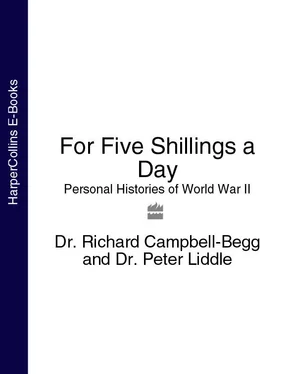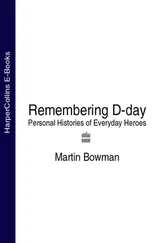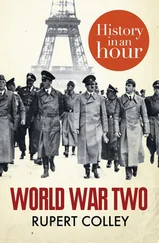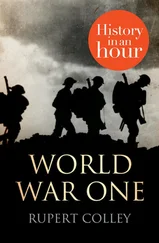There were four light tanks which had been abandoned by the French Army, so we looked inside and found that from their ammunition racks only one shell was missing; it was hard to believe it had been fired. Our position was on the rearguard, which we expected would result in our being taken prisoner, because Churchill, at the time, had said that it wouldn’t be possible to get everybody out. In many ways we were better off than the men who had been rushed down to the beach and to the port to be taken off as best they could. The road past the guns was one of the main routes down to the coast, and as time went by the troops leaving that way thinned out until they were just mostly British infantry marching down in proper military order. We also used them to give us an idea where the Germans were so that we could pick our targets.
In fact, life became quite quiet for a little while, but then the Germans found our gun position. We’d seen a plane flying overhead and after a while it went away, and then the shells started coming. It was getting a bit hot, in the dangerous sense, so we surveyed an alternative position about 300 yards away, moved the guns and started firing again. When we fired, the Germans fired back on our old position. When they did that we stopped firing and, fortunately, we were able to keep them fooled until we actually left that place. In our alternative position we found a concrete pillbox, and that housed our Command Post. We had taken in a young mother with her baby, who was in a state of hysteria every time a shell exploded, but fortunately her father was there who kept an eye on her. Her cottage had been hit by a shell, and the three of them had got away safely, but our concrete pillbox was really the only safe place for them, for which they were extremely grateful.
This went on till 1 June when orders were given from BEF Headquarters for the whole BEF to cease fire and move off down to the beach to be taken off. The orders were, artillery would cease fire at 10pm, infantry at 11pm, and between 11 and 12 there would be a small mobile force just keeping a watch. So we destroyed our guns by smashing the breech blocks with heavy hammers. That was the best we could manage, but they would have been useless after that.
Then we started making our way down to the beach carrying the guns’ dial sights – that was the other essential, not to let a dial sight from the guns fall into the Germans’ hands. As we marched down, all gunners – we were more like staggering – we heard infantry marching, marching to a light infantry pace, and it was the Guards, probably a platoon of Guards. One passed us like a shot out of a gun. As I told myself at the time, they had the energy but they hadn’t been throwing around 100-pound shells for a few days.
We got down to the beach and the sailors started coming in with lifeboats. I had to go into the water almost up to my shoulders, and I suddenly found somebody holding on to my hand. It was our signal sergeant; he was rather short and if he’d tried to stand on the seabed he would most certainly have gone right under. He couldn’t reach high enough to get hold of the gunwale of the boat, but he had some strong sailors there to lift him in. I was half in and half out when an officer decided to play the hero and ordered everybody out simply because he’d heard a big cry of “Take shelter!” from the opposite side of the boat. Actually the sailors were very rude to him and continued hauling people in on my side. That is just by the way. We got out with very little interference, shells occasionally falling on the beach, but otherwise there was little danger.
We got away on I think it must have been a minesweeper, an old ferry boat which used to operate between South Wales and Dorset; it was called the Glendower, the name of a Welsh patriot way back. The sailors hauled us aboard and put us in a room. I was in with half a dozen other men, just in what looked like an alcove with a curtain across it. Bread was handed out to everybody and then, a few minutes later, a bottle of rum was passed round. So we got away and without any unpleasant incidents, and then we landed in Harwich. The wounded were taken off first and then we were all given a good feed on the dockside.’
Meanwhile Lance Bombardier Seeney had been hopelessly cut off from the main British Expeditionary Force. He recalled that:
‘We had no idea really what was going on and we got on our trucks and wandered off towards St Nazaire and, after a few days, we eventually arrived there.
What we weren’t aware of at that time, Dunkirk had happened and it was all over and the French had already asked for an Armistice, and for two days we’d been wandering around in France, the northern parts of which the Germans really had control, but the French themselves were in such a muddle, they weren’t in a position to stop us. We continued on – where we got the petrol from I’ll never know – but we did and we eventually arrived at St Nazaire, and that had been heavily bombed early on in the piece. Much to our surprise, there was a boat pulled up in the harbour by the quay and it turned out to be the Phillip N, God bless it, a collier which was actually on its way, of all places, to Gibraltar. However, it had been stopped and turned back and asked to go into St Nazaire to pick up the remains of some British troops.
Well, I suppose there were about 100 to 150 of us. There were men from the Air Force, Army, you name it, there we were on the deck of the Phillip N, a collier, and we took off. Fortunately the weather was beautiful and, of course, once again I remember the full moon and thought, gosh, all these U-boats hanging around and there’d be the odd bomber. . . But, for some reason or another, which is so difficult to explain, this one little boat with all these men on board, with no real self-defence – except we did have some Bren guns with us and we tied them to the railings – and we did this, that and the other thing to give ourselves some sort of cover, which might have helped, but I doubt if it would have been a lot of good. However, it gave us something to do.
There was the problem of food, and somebody had the sense to toss in crates of tinned food, but mostly it was apricots; we had stewed apricots for a day or two but the biggest problem was water. One must remember it was only a small boat, probably with a crew of five or six, and it really became a problem. By the time we arrived into the Bristol Channel, they were aware that we were in trouble with the lack of water and the barrier was opened, the anti-submarine barrier, and it was opened and allowed us to continue up the Channel and we eventually arrived at Swansea late one evening. It must have been three days later – goodness knows, it was a long time.’
Pilot Officer James Hayter saw it all from the air. He remembered:
‘When the Blitz started we were doing low-level flying, low-level bombing on mainly the bridges of the River Meuse and convoys. We had big losses, we lost most of our aircraft. At the end of the collapse in France several of us were told to go to various airfields where our armament boys were, pick up our bombs and they’d re-arm us. We were told by the Adjutant, because all our senior officers had gone back to England, we were told to pick our own targets, which we did. We finished up at Nantes and I’d lost all my tail part except for the steering elevators and the rudder, which were damaged, and we asked for petrol from the French, which they refused to give us, so we took off and, as my engine cut out, we landed at Manston. We were tired and hungry and I remember saying that we thought our senior officers had let us down, and I received a ticking-off, which I felt ill-deserved.’
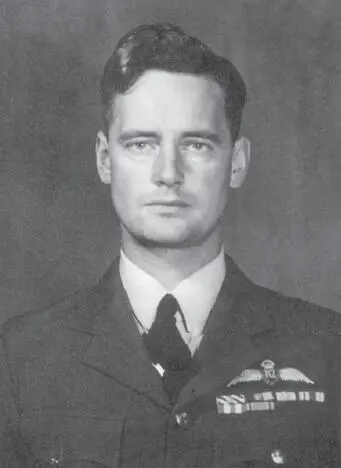
Читать дальше
